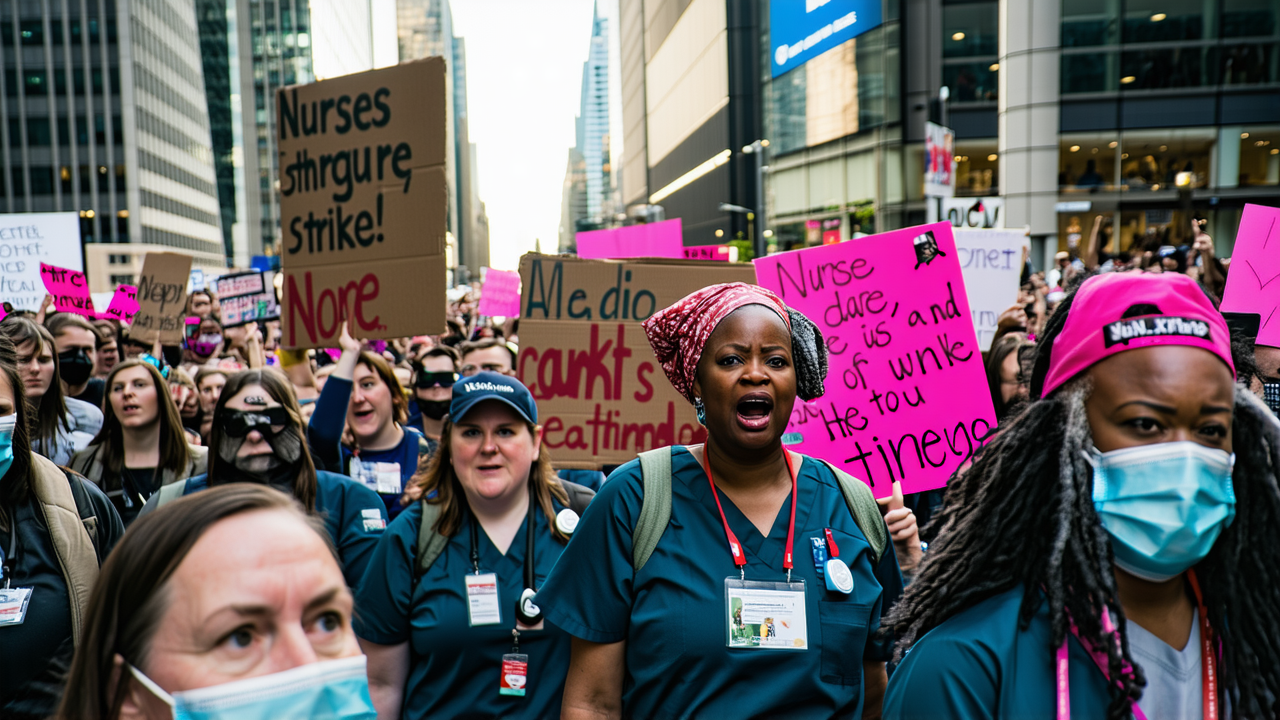Nurses Strike Across New Zealand: A Battle for Pay and Patient Safety
Nurses Strike Across New Zealand: A Battle for Pay and Patient Safety
More than 36,000 nurses, midwives, and healthcare assistants are set to walk off the job for 24 hours starting at 9am today, marking one of the largest strikes in New Zealand’s healthcare history. The action comes as a result of ongoing disputes over staffing levels and pay, with the Nurses Organisation emphasizing that this is not just about money—it is a call for safe staffing levels that ensure the wellbeing of both patients and healthcare workers.
The strike, organized by the Nurses Organisation, is a response to stalled contract negotiations with Te Whatu Ora, the national health agency. Health New Zealand has estimated that approximately 4300 patients will have their procedures or specialist appointments postponed during the 24-hour walkout. However, the union insists that the core issue is not merely financial—it is about the safety and sustainability of the healthcare system.
Tracy Chisholm, a nurse at Waikato Hospital’s emergency department and a union delegate, described the dire conditions on the ground. She said the emergency department is frequently understaffed, with patients waiting for hours in uncomfortable and sometimes unsanitary conditions. ‘Patients should not have to explain to their visiting children why the man in the bed next door keeps shouting out—using expletives and profanities—because the nurses have been unable to manage his pain or distress,’ she said.
Chisholm highlighted that the emergency department is short more than 20 full-time nurses, despite a clear need for additional staff. ‘One of our previous hospital managers said, “Hell yes, you need more staff,” but we’ve never gotten that budget,’ she said. ‘This is my health system. It’s the one my parents and children rely on. And it’s not good enough.’
Health New Zealand has argued that senior nurses’ pay has increased by nearly 74% since 2011, more than double the average worker’s increase. However, Chisholm pointed out that much of that increase was due to a long-fought pay equity claim, addressing decades of gender-based wage discrimination. ‘We’re not asking for the same percentage that they’ve all just got in their little offices. We’re just looking at the cost-of-living so we can feed our children, pay our bills, and just carry on,’ she said.
While the Nurses Organisation is seeking a 3% pay increase this year (backdated to April 7) and a 2% increase next year (effective April 2026), Health New Zealand has offered a 2% increase this year, 1% next year, and a lump sum of $325. The union has criticized the proposed extension of the agreement term to 27 months, arguing that it would dilute the value of the pay rise over time.
Paul Goulter, chief executive of the Nurses Organisation, emphasized that the heart of the dispute is the failure of the government to guarantee funding and resources for safe staffing levels. Data obtained under the Official Information Act showed that 50% of day shifts in 16 districts over 10 months were understaffed. The union accuses Health NZ of erasing long-standing safe staffing commitments from the collective agreement.
Health NZ has maintained that clinical matters should be addressed through operational policies. Goulter countered that this is misleading, stating the real issue is that the government is not providing the necessary resourcing to ensure proper staffing.
The strike has also raised concerns among future nurses. Bianca Grimmer, national student president of the Nurses Organisation, said that less than half of mid-year nursing graduates have been offered hospital jobs so far. ‘It’s definitely nerve-wracking for me and my cohort. You’re wondering where do I go from here? Do I apply to go overseas as well as applying for here?’ she said.
Hospitals and emergency departments will remain open during the strike, which ends at 9am on Thursday. To maintain patient safety, most clinics will be closed, but patients with appointments are advised to attend unless contacted otherwise.
